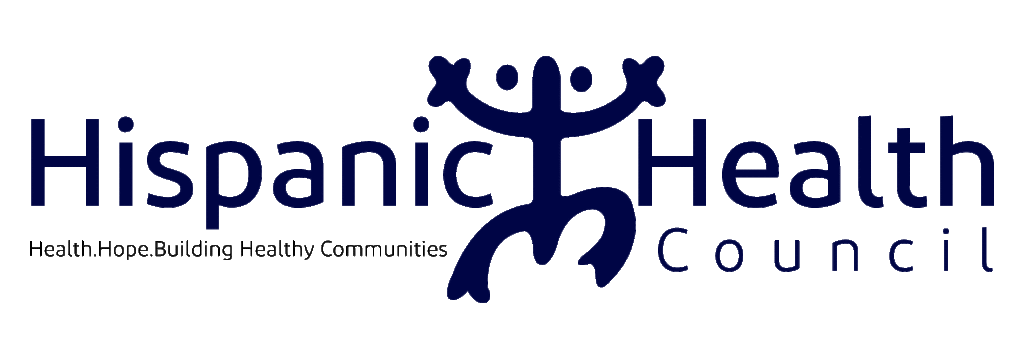The Hispanic Health Council’s mission of promoting equity and addressing health disparities extends to all vulnerable communities, and we recognize the importance of centering and uplifting the specific barriers to health equity faced by our LGBTQIA+ community members. An estimated 2,253,000 U.S. adults self-identify as both LGBTQIA+ and Latinx, and with these intersecting identities comes unique challenges to achieving health equity due to interpersonal and systemic oppressions in the form of racism, sexism, transphobia, and homophobia. HHC is committed to dismantling any and all forms of racism, sexism, transphobia, homophobia, and other types of discrimination faced by the LGBTQIA+ Latinx community, both within and without our organization.
We also recognize that the term “Latinx (lah-teen-ex)” is a relatively new term that is used as an inclusive, gender-neutral alternative to “Latino” or “Latina.” HHC acknowledges that such a diverse community and diaspora may use multiple labels of self-identification, such as Hispanic, Latina, Latino, Latine, Chicana, Chicano, countries from which their families come (Puerto Rican, Columbian, Mexican, etc.), and others. While there might be unfamiliarity to or hesitance with the term “Latinx” among some community members, HHC is committed to creating a space in which folks feel comfortable with using whichever term or label best represents their identities, and encourages others to respect the choices made by their fellow community members.
Our mission to improve the health and social well-being of Latinx and other diverse communities comes with a responsibility to the LGBTQIA+ community that we pledge to not ignore. Systemically, LGBTQIA+ Latinx folks face many barriers to health equity: 28% of Latinx LGBT adults are uninsured; Latinx LGBT adults are more likely to be unemployed (10% vs. 8%) and to experience food insecurity (32% vs. 25%) than Latinx non-LGBT adults; nearly 30% of Latinx LGBT adults have been diagnosed with depression, compared to 16% of Latinx non-LGBT adults; more Latinx LGBT adults than non-LGBT adults report having mild or high disability; 74% of Latinx LGBT adults reported having experienced everyday discrimination in the prior year (such as being treated with less courtesy than other people), 42% reported experiencing physical or sexual assault at some point as an adult, and 69% reported experiencing verbal assault or abuse at some point as an adult defined by the number of days that they experienced limitations due to poor health in the prior month (Williams Institute, 2021); these are just some of the barriers LGBTQIA+ Latinx folks face, which HHC will work to address through its research and advocacy projects.
In our continued efforts of supporting the LGBTQIA+ community, we will regularly assess our internal structure to ensure our organization meets the needs and expectations of the community, and remains a safe space for our LGBTQIA+ staff, clients, stakeholders, and community partners. We recognize that allyship is a continuous process of introspection, humility, growth, and learning, and we will remain transparent and honest in our work so that we may be held accountable to the needs of the LGBTQIA+ community. HHC remains committed to utilizing our resources in research and advocacy to improve the overall quality of life and health of LGBTQIA+ community members. We aim to foster new and old relationships throughout our efforts so that we may continue building stronger, interconnected communities that work toward building a society free from racism, sexism, homophobia, transphobia, and other forms of discrimination faced by our LGBTQIA+ community members.

